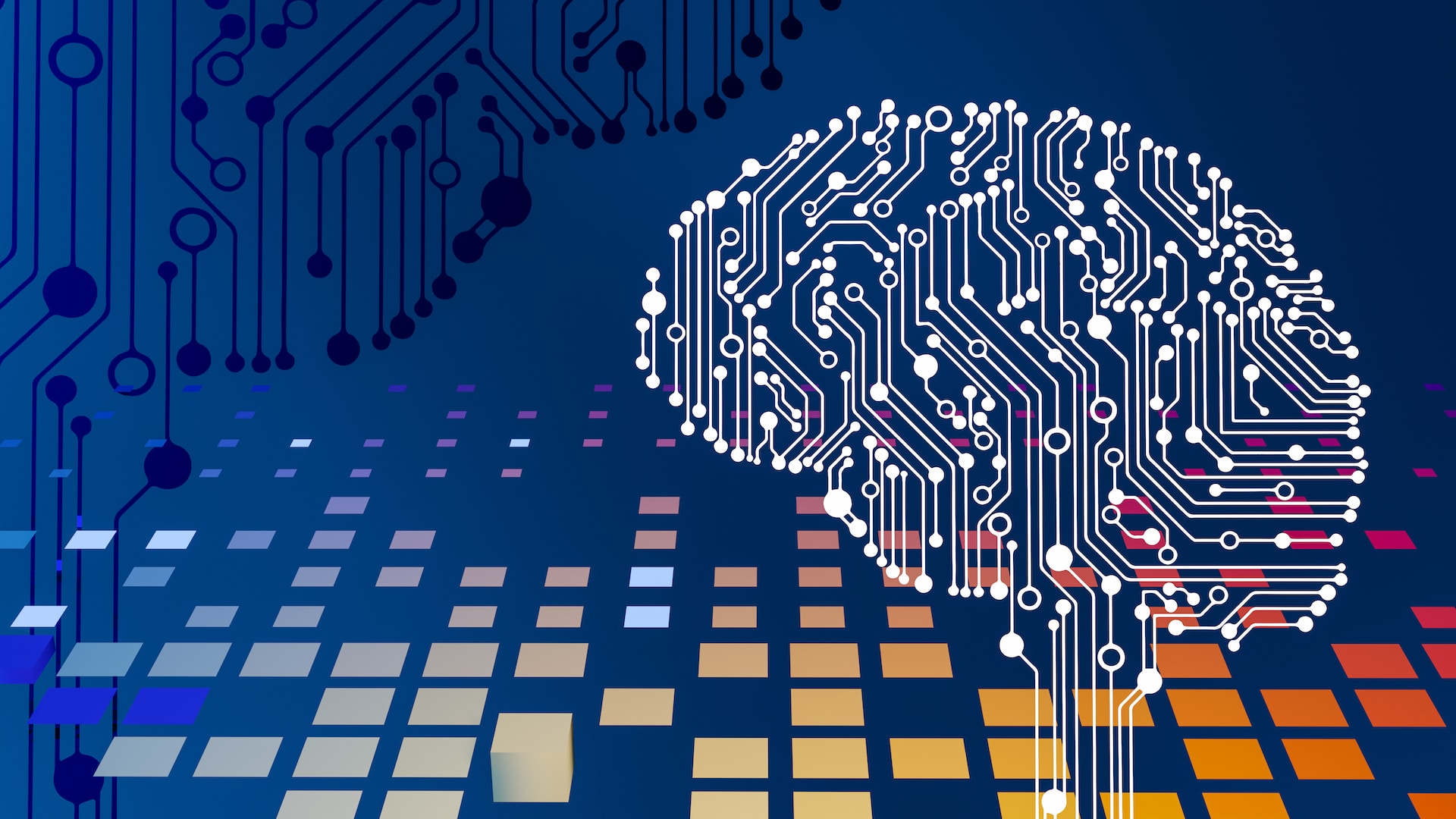Exploring job options in the fast-growing field of Artificial Intelligence (AI) means you need to really understand what skills and knowledge are needed. More and more businesses in different areas are starting to use smart systems, leading to a big increase in the need for skilled people in this area.
this article offers a detailed guide for those who want to build a successful career in this area. From getting really good at machine learning to improving your problem-solving skills, we cover all the important things you need to stand out in the AI job market.
Core Technical Skills Needed For Artificial Intelligence Jobs

1. Machine Learning and Deep Learning
Artificial Intelligence is deeply intertwined with machine learning (ML) and deep learning (DL), requiring practitioners to have a profound understanding of various algorithms. In ML, one must be well-versed in both supervised learning, where models are trained using labeled data, and unsupervised learning, which deals with unlabelled data. Reinforcement learning, a paradigm where models learn by interacting with an environment, is crucial for real-time decision-making applications.
Deep learning, a specialized subset of ML, necessitates a grasp of neural networks. Particularly, proficiency in convolutional neural networks (CNNs) is imperative for image-related tasks, while recurrent neural networks (RNNs) are vital for sequential data such as time series or natural language. Mastery over frameworks like TensorFlow or PyTorch, which facilitate the creation and training of these networks, is indispensable.
2. Programming Languages
Programming proficiency is pivotal in AI. Python stands out due to its extensive libraries such as NumPy for numerical computations, TensorFlow and PyTorch for ML and DL, and Scikit-Learn for classical ML algorithms. Its large community support ensures a wealth of resources for learning and troubleshooting.
R, renowned for its applications in statistics and data analysis, is another valuable language. Its packages like ggplot for data visualization and various ML libraries make it a strong choice for data-centric AI roles.
Java and C++, known for their high performance, are crucial in scenarios where execution speed is paramount, such as in real-time data processing or robotics.
3. Data Science and Analytics
AI is intrinsically data-driven, making skills in data science and analytics fundamental. Practitioners must be adept at data cleaning, handling missing or inconsistent data, and transforming raw data into a format suitable for analysis.
Tools like Pandas for data manipulation, and SQL for database querying are essential. Furthermore, proficiency in data visualization tools like Matplotlib and Seaborn is necessary to translate data insights into understandable visual representations, aiding in decision-making.
4. Natural Language Processing (NLP):
NLP enables machines to understand, interpret, and generate human language, a capability crucial for applications like chatbots, translators, and personal assistants. Key skills include tokenization, the process of converting text into smaller units like words or phrases; stemming, which involves reducing words to their root form; and working with word embeddings, which represent words as vectors in a multidimensional space.
5. Computer Vision
Computer Vision empowers computers to interpret visual information from the world, such as images and videos, and make decisions based on it. It encompasses a variety of tasks including image classification, object detection, and image generation.
Practitioners need to be proficient in image processing techniques and understand how to manipulate and analyze image data. Libraries like OpenCV provide a wealth of tools for these purposes, from basic operations like resizing and filtering to advanced functions for feature extraction and object recognition.
6. Cloud Computing
Cloud computing has become indispensable for scaling AI applications, providing flexible and robust computational resources. Familiarity with major cloud platforms like AWS, Azure, or Google Cloud is invaluable. AWS offers a plethora of ML services including SageMaker for building, training, and deploying machine learning models, and Recognition for image and video analysis. Azure’s ML services and Google Cloud’s AI Platform provide similar capabilities, facilitating the development of sophisticated AI solutions.
Understanding how to leverage these cloud services can significantly enhance the efficiency and scalability of AI applications. Furthermore, it opens up opportunities to work with large datasets and complex computational tasks that would be challenging to manage on local machines.
7. Software Engineering Practices
Solid software engineering practices are crucial for maintaining the integrity and efficiency of AI projects. Version control systems like Git help manage code changes, collaborate with others, and track the history of project developments. This ensures that teams can work together seamlessly, regardless of their physical location.
Containerization tools like Docker simplify the deployment of applications by packaging them with their dependencies, ensuring consistency across various computing environments. Continuous integration tools such as Jenkins or Travis CI automate the testing and deployment of code, enhancing the development workflow and ensuring that changes do not introduce bugs.
8. Robotics
For AI practitioners looking to branch into the integration of AI with physical devices, a grounding in robotics is essential. This encompasses understanding how sensors gather data from the environment, how actuators respond to commands, and how to program these interactions. Robotic programming languages such as ROS (Robot Operating System) provide frameworks for developing robotic software, offering libraries and tools specifically designed for these purposes.
Skills in robotics are especially relevant in industries such as manufacturing, where AI is used to enhance the precision and efficiency of robotic arms, and in autonomous vehicles, where AI algorithms interpret sensor data to make driving decisions. Understanding the interplay between software and hardware in these contexts is crucial, and a background in robotics provides a strong foundation for these roles.
Soft Skills and Personal Attributes That Must Have for AI Jobs

1. Problem-solving and Critical Thinking
The ability to think critically and solve problems efficiently stands paramount In AI. Professionals are frequently confronted with complex challenges requiring analytical skills and innovative solutions. Whether it’s debugging a machine learning model, optimizing algorithms for better performance, or finding ways to handle unstructured data, a strong problem-solving mindset is indispensable. It entails dissecting issues, weighing different solution strategies, and applying logical reasoning to arrive at effective resolutions.
2. Communication
AI initiatives are multifaceted, often necessitating clear and concise communication. Professionals must articulate complex AI concepts and their implications to stakeholders and team members, who may not have a technical background. This skill ensures that everyone involved has a comprehensive understanding of the project, fostering informed decision-making and aligning the team with the project’s objectives. Effective communication also aids in demystifying AI, making it more accessible and fostering a collaborative working environment.
3. Continuous Learning
The landscape of AI is constantly changing, with new technologies, tools, and methodologies emerging regularly. To remain relevant and competitive, a steadfast commitment to continuous learning is essential. This could manifest in various forms – from enrolling in online courses and workshops to engaging in self-study and research. The goal is to stay abreast of industry trends, acquire new skills, and deepen existing knowledge, ensuring that one’s expertise evolves in tandem with the field.
4. Teamwork and Collaboration
AI projects are typically interdisciplinary, necessitating seamless collaboration across various departments. Professionals must work cohesively with data engineers, who ensure the availability of quality data; business analysts, who provide business insights; and domain experts, who bring in-depth knowledge of the field. The ability to collaborate effectively ensures that diverse perspectives are considered, enhancing the project’s overall quality and ensuring that the AI solutions developed are well-rounded, robust, and tailored to the specific needs of the business.
5. Adaptability
The field of AI is dynamic, with new technologies and methodologies constantly emerging. Professionals need to be adaptable, ready to embrace change, and quick to learn new tools or approaches. This flexibility can make the difference between staying ahead in the field and falling behind.
6. Creativity and Innovation
AI often requires creative problem-solving. Whether it’s devising a novel algorithm, finding a unique approach to data analysis, or brainstorming ways to improve model performance, creativity is a valuable asset. Encouraging an innovative mindset can lead to breakthroughs and advancements in AI projects.
7. Attention to Detail
In AI, even the smallest error in code, data, or algorithm selection can lead to significant issues. A keen attention to detail is necessary to catch these errors early, ensuring accuracy and reliability in AI applications. This trait is particularly crucial when fine-tuning models or cleaning and preparing data.
8. Emotional Intelligence
Understanding and managing one’s own emotions, as well as being able to empathize with others, is crucial, especially when working in diverse teams. Emotional intelligence helps in building positive relationships, resolving conflicts, and creating a collaborative working environment. In client-facing roles or when needing to explain AI concepts to non-technical stakeholders, this skill becomes even more vital.
Educational Background and Certifications For AI Jobs

1. Formal Education
Embarking on a career in Artificial Intelligence often begins with a solid formal education. A bachelor’s or master’s degree in fields such as computer science, mathematics, statistics, or engineering lays down a comprehensive foundation, covering essential theoretical concepts and practical skills. These programs typically include coursework on algorithms, data structures, software engineering, and probability, all of which are crucial for understanding and working in AI.
For those looking to delve deeper into AI and machine learning, pursuing advanced degrees like a Ph.D. can lead to specialized knowledge and research opportunities, potentially opening doors to roles in academia, research institutions, and innovative tech companies.
2. Online Courses and Certifications
The rapid evolution of AI has led to the proliferation of online learning platforms offering courses and certifications in AI and machine learning. Platforms such as Coursera, edX, and Udacity provide access to courses developed by top universities and tech companies, covering topics from introductory AI principles to advanced machine learning algorithms.
These online resources allow for flexible learning, enabling professionals to enhance their skills and knowledge at their own pace. Certifications from these courses serve as tangible proof of one’s commitment to continuous learning and mastery of specific AI domains, making them a valuable asset for career growth.
3. Workshops and Bootcamps
For those seeking a more immersive and hands-on learning experience, workshops and boot camps offer intensive training sessions. These programs are designed to provide practical skills in a short amount of time, often focusing on specific tools, programming languages, or AI applications.
Bootcamps, in particular, are known for their rigorous pace and project-based learning, offering participants the chance to work on real-world problems and develop a portfolio of work. This approach not only solidifies theoretical knowledge but also enhances coding and problem-solving skills, bridging the gap between academic learning and industry requirements.
Building a Portfolio and Gaining Experience for Getting Artificial Intelligence Jobs

1. Projects and Case Studies
Theoretical knowledge in AI is invaluable, but the ability to apply these concepts to real-world scenarios truly sets a candidate apart. Building a robust portfolio of projects and case studies is a tangible way to demonstrate your skills and understanding of AI technologies. Utilize platforms like GitHub to maintain a repository of your work, ensuring that each project is well-documented, explaining the problem, the methodology applied, and the results obtained.
Include a variety of projects that showcase your skills in different areas of AI, such as machine learning models, natural language processing, or computer vision applications. Make sure to highlight any unique challenges you faced and how you overcame them. This not only demonstrates your technical capabilities but also your problem-solving skills and creativity.
2. Internships and Co-op Programs
Gaining practical experience is pivotal in the field of AI, and internships or co-op programs provide an invaluable opportunity to apply your knowledge in a real-world setting. These experiences allow you to work on practical problems, collaborate with experienced professionals, and learn about industry best practices.
Internships can also be a stepping stone to employment, as many companies prefer to hire individuals with practical experience. They provide a chance to network, understand the workings of the industry, and figure out which areas of AI interest you the most. Moreover, they enhance your resume, making you a more attractive candidate when you enter the job market.
Preparing for the Job Market For AI Jobs

1. Resume Building
Crafting an impactful resume is a crucial step in your job search journey. It is your personal marketing document, meant to highlight your skills, accomplishments, and experiences most relevant to the job you are applying for. In the field of AI, emphasize your technical proficiencies such as programming languages, machine learning frameworks, and tools that you are adept in.
Include specific projects and case studies you have worked on, detailing your role, the challenges faced, and the solutions you provided. Quantify your achievements wherever possible to give employers a clear sense of your capabilities. For example, instead of saying “improved model accuracy,” you could say “enhanced model accuracy by 15% through feature engineering and hyperparameter tuning.”
In addition to your technical skills, highlight any internships, co-op programs, or relevant work experience. Don’t forget to include any certifications or additional training you have completed, as these demonstrate your commitment to continuous learning and staying up-to-date in your field.
2. Interview Preparation
The job interview is a critical component of the hiring process, and thorough preparation is key. Expect to face technical questions that assess your understanding of AI concepts, algorithms, and problem-solving abilities. Review the fundamentals, practice coding challenges, and be prepared to walk through your thought process when solving complex problems.
In addition to technical questions, you will also face behavioral questions aimed at understanding your soft skills, work ethic, and cultural fit. Prepare examples that demonstrate your problem-solving skills, ability to work in teams, and how you handle challenges. Use the STAR method (Situation, Task, Action, Result) to structure your responses, providing context and highlighting the positive outcomes of your actions.
FAQs
A strong foundation in machine learning and deep learning is indispensable, as these form the backbone of AI. Proficiency in programming languages such as Python, R, and Java is mandatory, with Python being particularly favored due to its extensive libraries. A good grip on data science and analytics, expertise in Natural Language Processing (NLP), and skills in computer vision are also crucial. These skills together empower professionals to build, implement, and optimize AI models and systems.
Programming languages are the tools that bring AI algorithms to life. Python’s extensive libraries make implementing complex AI models more straightforward, while R’s statistical packages are invaluable for data analysis. Java and C++’s performance benefits make them suitable for high-performance AI systems. Proficiency in these languages ensures efficiency and effectiveness in developing AI solutions.
Data science is important to AI as it involves collecting, cleaning, and analyzing data to derive meaningful insights. These insights are used to train and optimize AI models, making data science skills essential for any AI role. Professionals need to be adept at using tools for data manipulation, visualization, and analysis to thrive in the AI domain.
NLP enables machines to understand, interpret, and generate human language, making it crucial for applications like chatbots, translation services, and sentiment analysis. Skills in tokenization, stemming, and working with word embeddings are vital. NLP enhances user experience and broadens the range of tasks AI can perform.
Computer vision enables machines to interpret visual information from the world, which is vital for image and video analysis, facial recognition, and other applications. Proficiency in image processing techniques and libraries such as OpenCV is required to develop solutions that can respond to visual data.
Cloud computing platforms provide scalable and flexible resources that are crucial for training and deploying AI models. Familiarity with platforms like AWS, Azure, or Google Cloud allows professionals to leverage powerful computing resources, storage, and machine learning tools, facilitating efficient AI development and deployment.
Beyond the core technical skills, understanding software engineering practices like version control with Git, containerization with Docker, and continuous integration practices ensures seamless integration and deployment of AI solutions. Robotics skills are also valuable, especially for roles that integrate AI with physical devices.
AI roles often involve complex problem-solving and collaboration with cross-functional teams. Skills like critical thinking, effective communication, and the ability to work well in a team are crucial. They enable professionals to navigate challenges, convey complex ideas clearly, and contribute positively to team dynamics, enhancing overall productivity and innovation.
A solid educational background with a bachelor’s or master’s degree in computer science, mathematics, or a related field is typically required. This provides the theoretical knowledge necessary to understand and develop AI algorithms and systems.
Online courses and certifications from renowned platforms offer specialized training in AI and machine learning, helping professionals deepen their knowledge and stay updated with the latest advancements. These courses provide practical skills and knowledge that can significantly enhance career prospects in the AI field.
Internships and co-op programs offer invaluable industry experience, allowing individuals to apply their skills in real-world settings, build professional networks, and enhance their employability. These programs provide a platform to learn from experienced professionals and gain insights into the AI industry.
A portfolio of projects and case studies demonstrates one’s practical skills and ability to apply AI in real-world scenarios. Maintaining a GitHub repository with well-documented, diverse projects can significantly enhance a job applicant’s visibility and attractiveness to potential employers.
Preparing for the AI job market involves creating a compelling resume that highlights relevant skills, experiences, and projects. Additionally, preparing for both technical and behavioral interviews is crucial, as it helps demonstrate not just technical proficiency but also problem-solving abilities, critical thinking, and effective communication skills.
































































